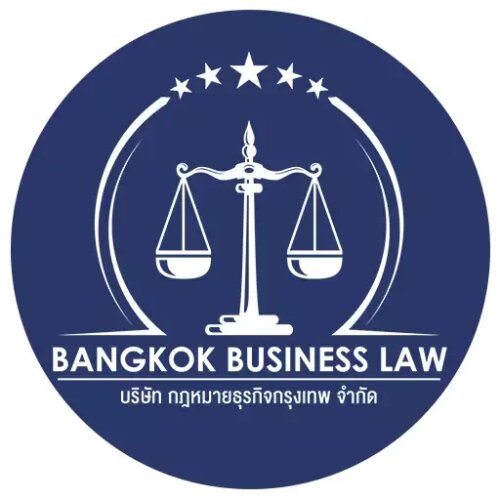Best Employment Benefits & Executive Compensation Lawyers in Bang Kapi
Share your needs with us, get contacted by law firms.
Free. Takes 2 min.
List of the best lawyers in Bang Kapi, Thailand
About Employment Benefits & Executive Compensation Law in Bang Kapi, Thailand
In Bang Kapi, Thailand, Employment Benefits & Executive Compensation law encompasses a range of legal statutes and regulations designed to safeguard the rights of employees and guide employers in providing fair benefits and compensation packages. This field of law covers aspects such as salaries, bonuses, health benefits, retirement plans, and non-compete agreements. It's critical for businesses and employees to understand these laws to ensure compliance and proper negotiation of employment terms.
Why You May Need a Lawyer
There are several common scenarios in which individuals or companies may seek legal assistance in Employment Benefits & Executive Compensation. These include disputes regarding severance packages, misunderstandings over contractual terms, issues with pension plans or bonuses, and compliance with local and international labor laws. A lawyer can help navigate these complex situations, ensure legal compliance, and protect the client's interests in negotiations or litigation.
Local Laws Overview
In Bang Kapi, Thailand, employment and compensation laws are largely influenced by the Thai Labor Protection Act and other related legislations. Key aspects include mandatory minimum wage, regulations regarding overtime pay, stipulations about annual leave, and statutory requirements for severance pay. Employers must also comply with social security and welfare fund contributions. It is crucial for both employers and employees to be aware of these requirements to prevent disputes and ensure fair treatment.
Frequently Asked Questions
What are the basic employment benefits mandated by law in Thailand?
Employers are legally required to provide minimum wage, overtime pay, social security benefits, severance pay, and paid annual leave to employees in Thailand.
Is there a standard retirement age in Thailand?
The standard retirement age in Thailand is currently set at 60 years, although retirement terms can be agreed upon in company-specific agreements.
Can an employer change the terms of an employment contract unilaterally?
No, any changes to an employment contract must generally be agreed upon by both parties. Unilateral changes can be contested in court.
What is considered overtime work?
In Thailand, any work performed beyond the standard 8 hours a day or 48 hours a week is considered overtime and must be compensated at a higher rate as dictated by law.
Are executives entitled to the same labor protections as regular employees?
While executives are often subject to different contractual terms, they are still entitled to basic labor protections unless specifically exempted under certain agreements.
What recourse is available if an employer fails to pay the agreed compensation?
An employee can file a complaint with the Department of Labor Protection and Welfare, which can mediate disputes and ensure compliance with labor laws.
Are bonuses considered a legal obligation?
Bonuses are not generally mandated by law unless specified in the employment contract or company policy. However, customarily issued bonuses may be deemed an entitlement.
How is severance pay calculated in Thailand?
Severance pay is usually calculated based on the length of employment, with specific multiples of the monthly salary as dictated by the Labor Protection Act.
What are the tax implications for executive compensation?
Executive compensation may be subject to personal income tax, and specific benefits might be taxed differently. Consulting with a tax advisor is recommended for detailed advice.
Can employees negotiate their benefits package?
Yes, employees can negotiate the terms of their benefits packages during the hiring process or during contract renewals. It's advisable to consult with a legal expert to ensure a fair agreement.
Additional Resources
Individuals seeking additional information or assistance can reach out to several resources including the Department of Labor Protection and Welfare, legal aid organizations, and professional law firms specializing in employment law. Educational seminars and workshops are also available to increase awareness and understanding of legal rights and responsibilities.
Next Steps
If you find yourself in need of legal assistance regarding Employment Benefits & Executive Compensation in Bang Kapi, Thailand, it is recommended to consult with a specialized lawyer. Begin by preparing all relevant documentation related to your employment and any disputed issues. You may then search for reputable law firms in the area or utilize legal referral services to find an attorney with the appropriate expertise. Scheduling a consultation can provide you with the legal insights needed to determine your rights and the best course of action.
Lawzana helps you find the best lawyers and law firms in Bang Kapi through a curated and pre-screened list of qualified legal professionals. Our platform offers rankings and detailed profiles of attorneys and law firms, allowing you to compare based on practice areas, including Employment Benefits & Executive Compensation, experience, and client feedback.
Each profile includes a description of the firm's areas of practice, client reviews, team members and partners, year of establishment, spoken languages, office locations, contact information, social media presence, and any published articles or resources. Most firms on our platform speak English and are experienced in both local and international legal matters.
Get a quote from top-rated law firms in Bang Kapi, Thailand — quickly, securely, and without unnecessary hassle.
Disclaimer:
The information provided on this page is for general informational purposes only and does not constitute legal advice. While we strive to ensure the accuracy and relevance of the content, legal information may change over time, and interpretations of the law can vary. You should always consult with a qualified legal professional for advice specific to your situation.
We disclaim all liability for actions taken or not taken based on the content of this page. If you believe any information is incorrect or outdated, please contact us, and we will review and update it where appropriate.








